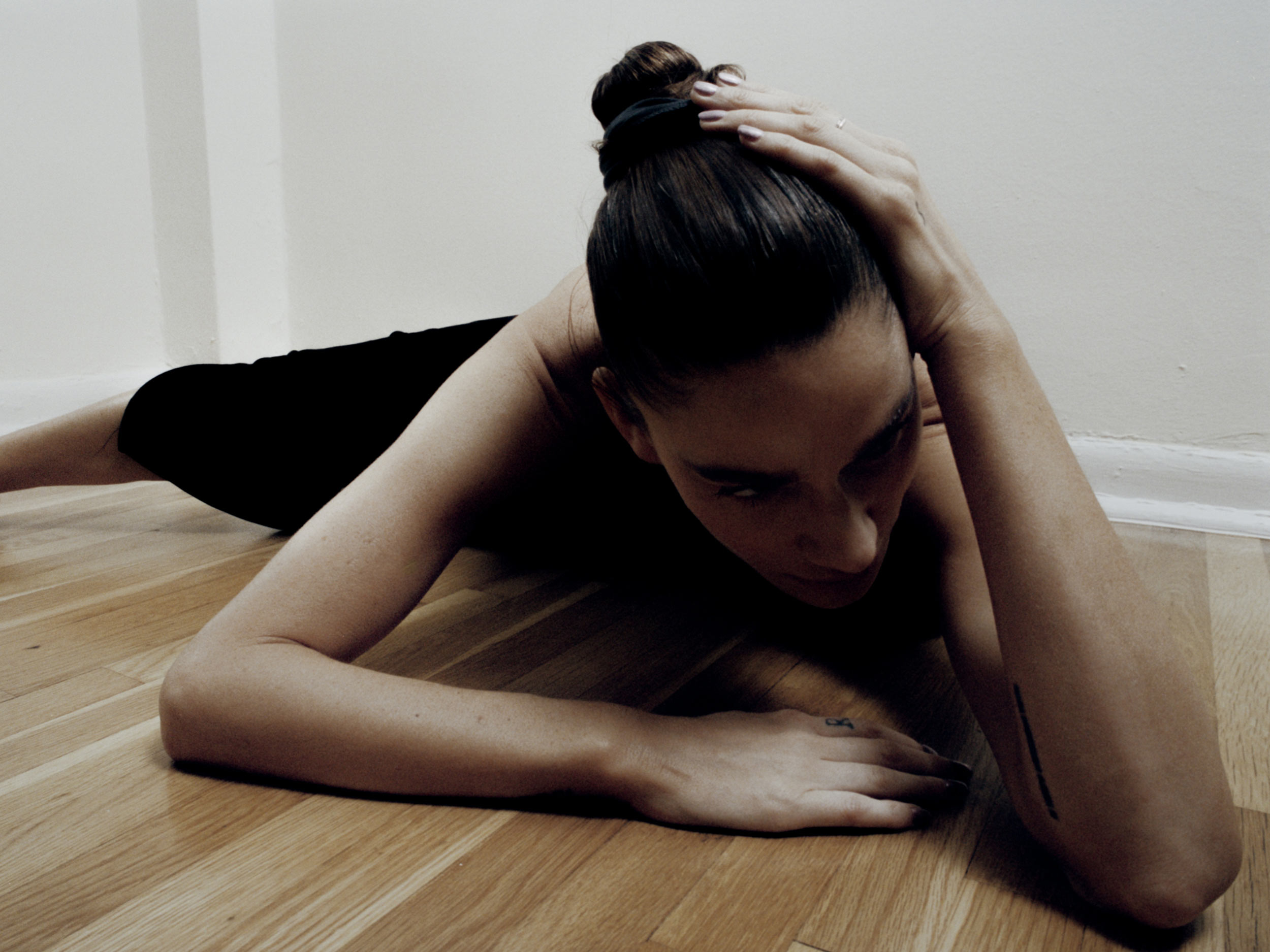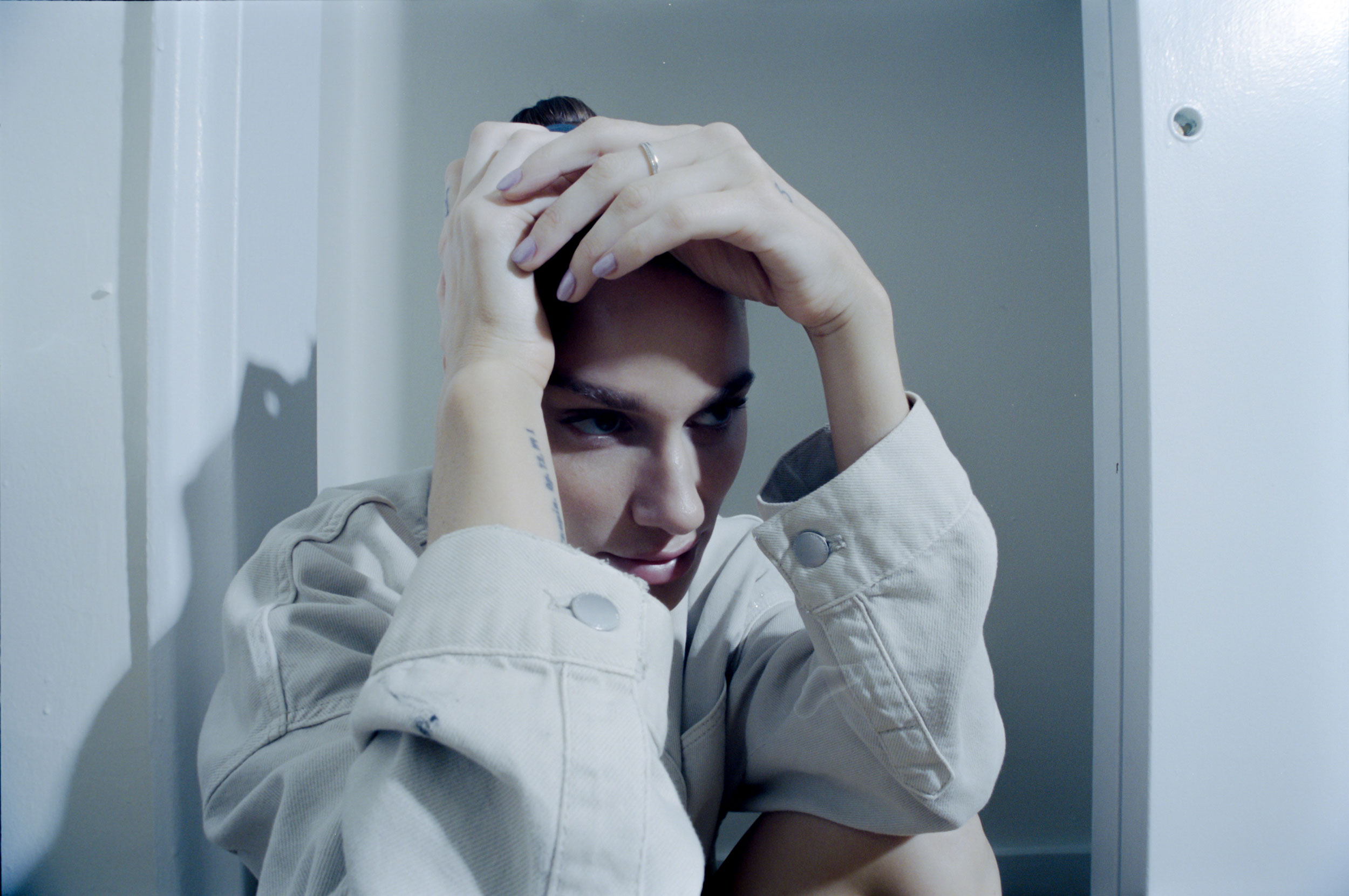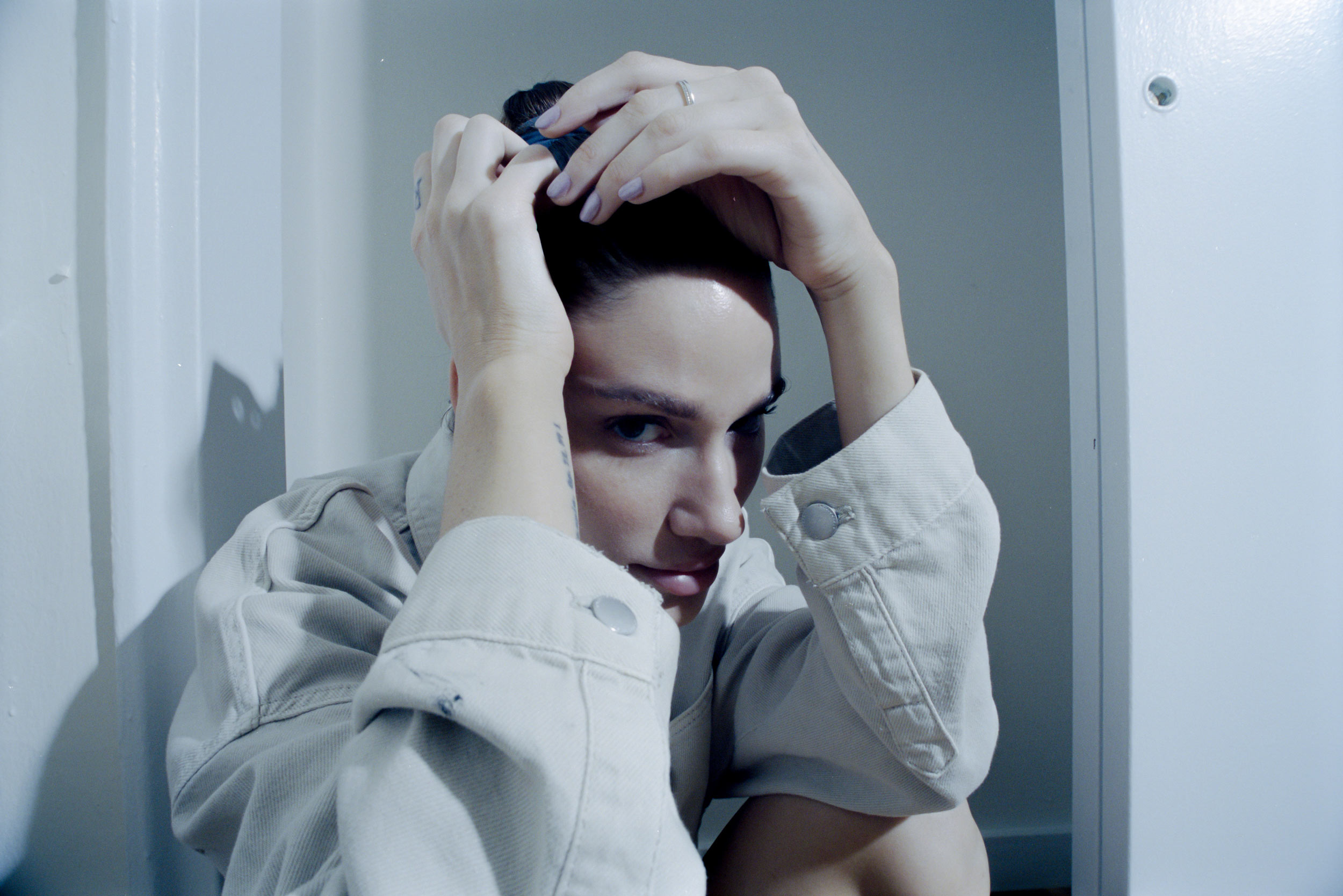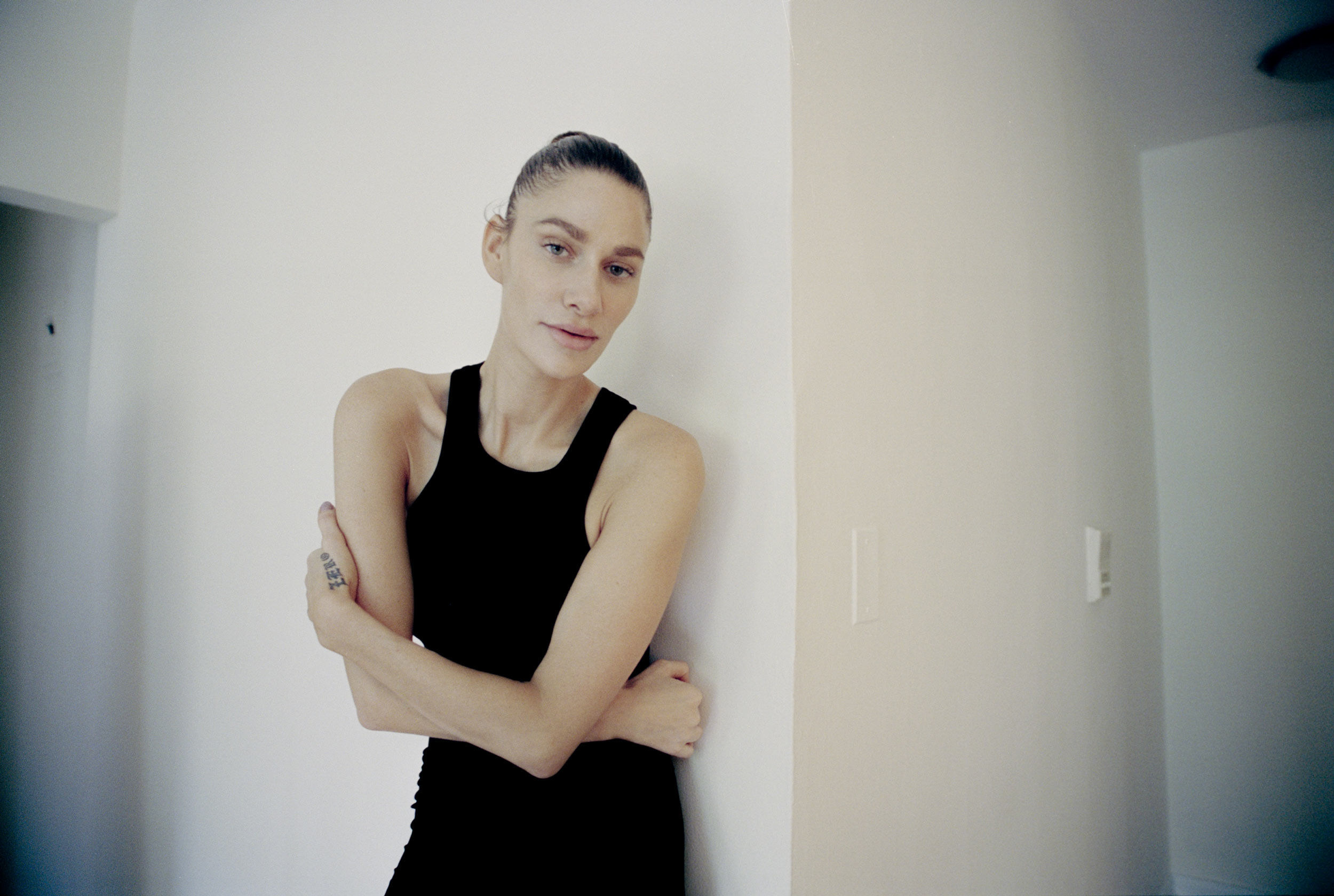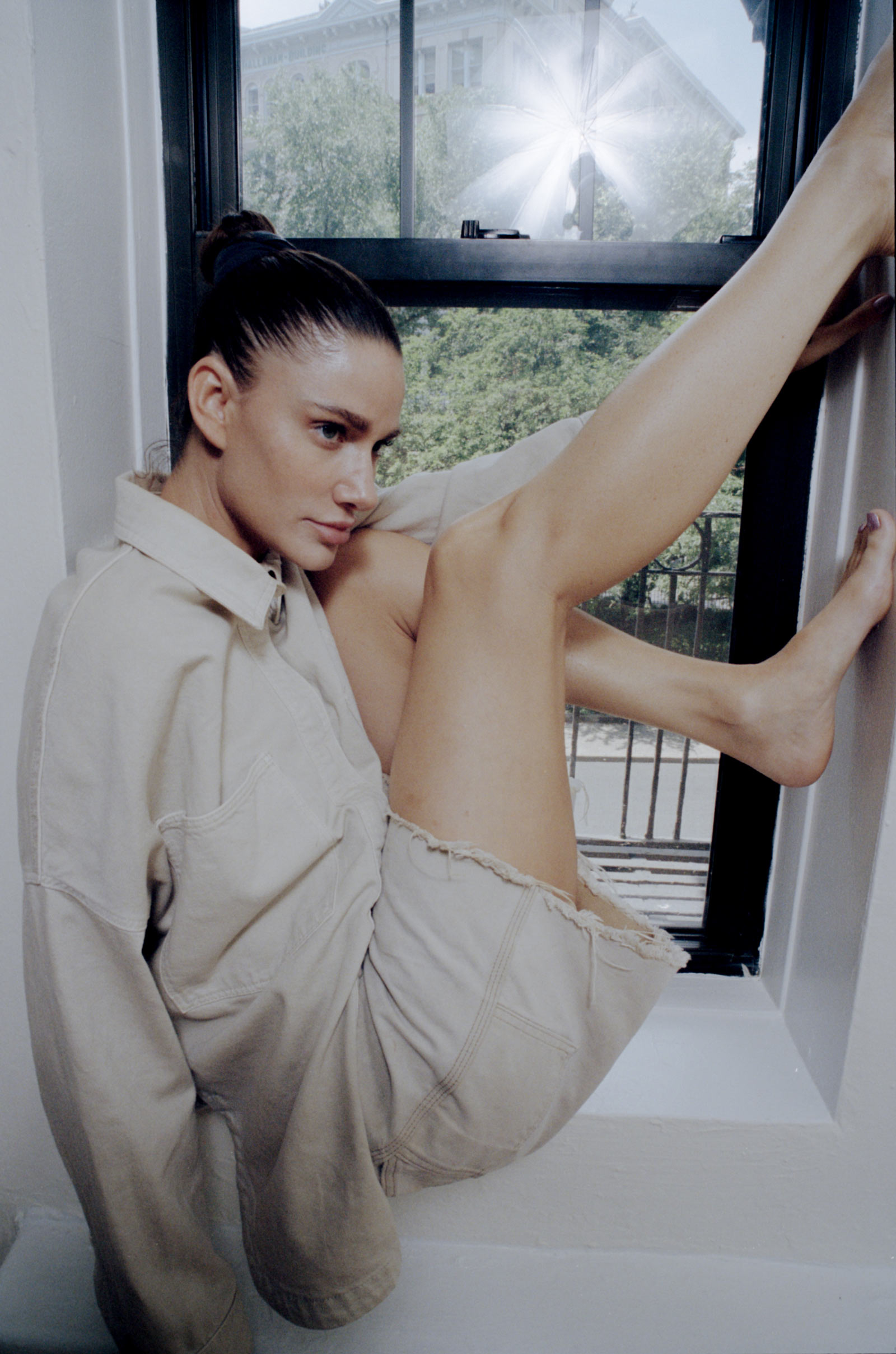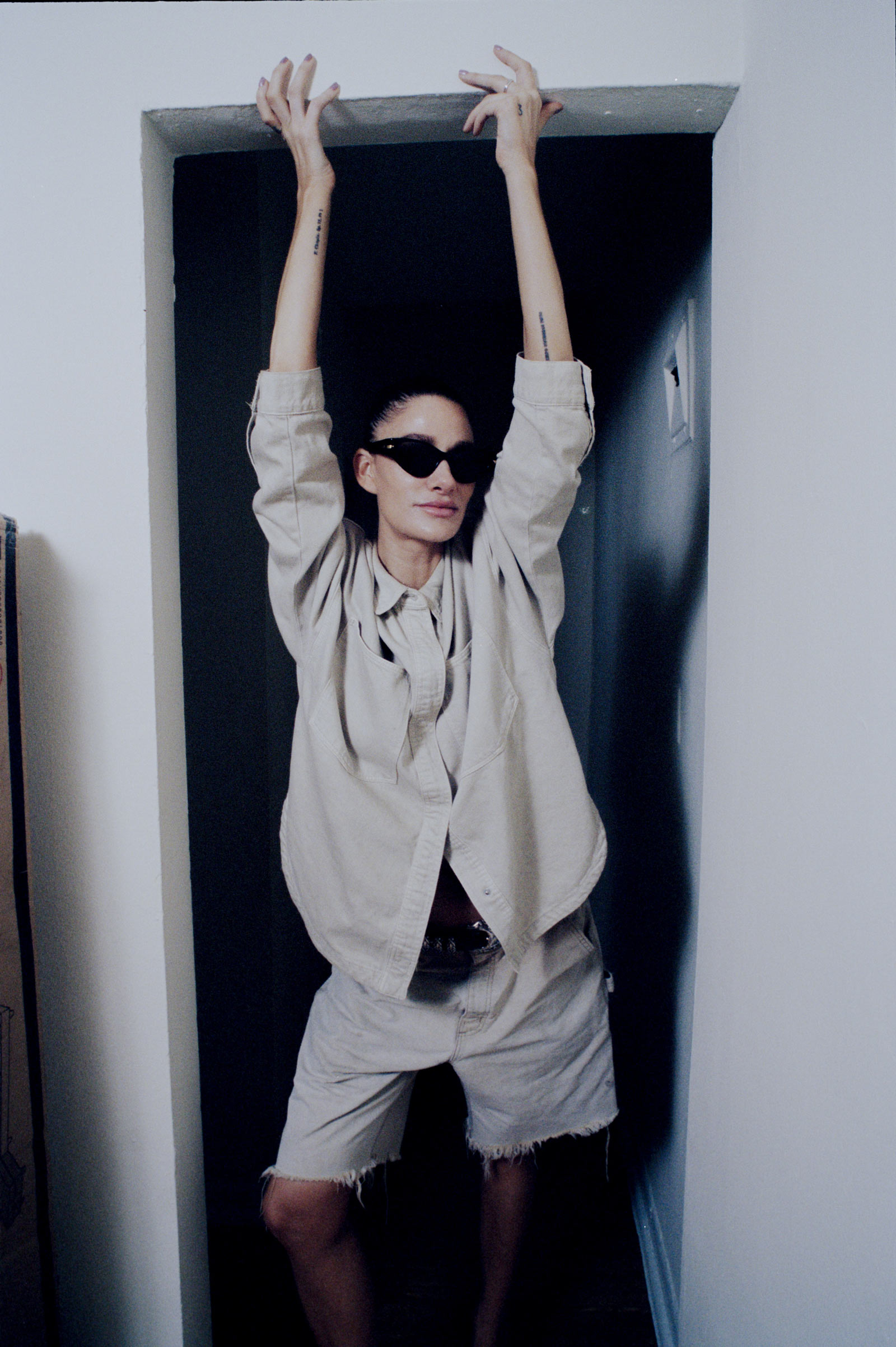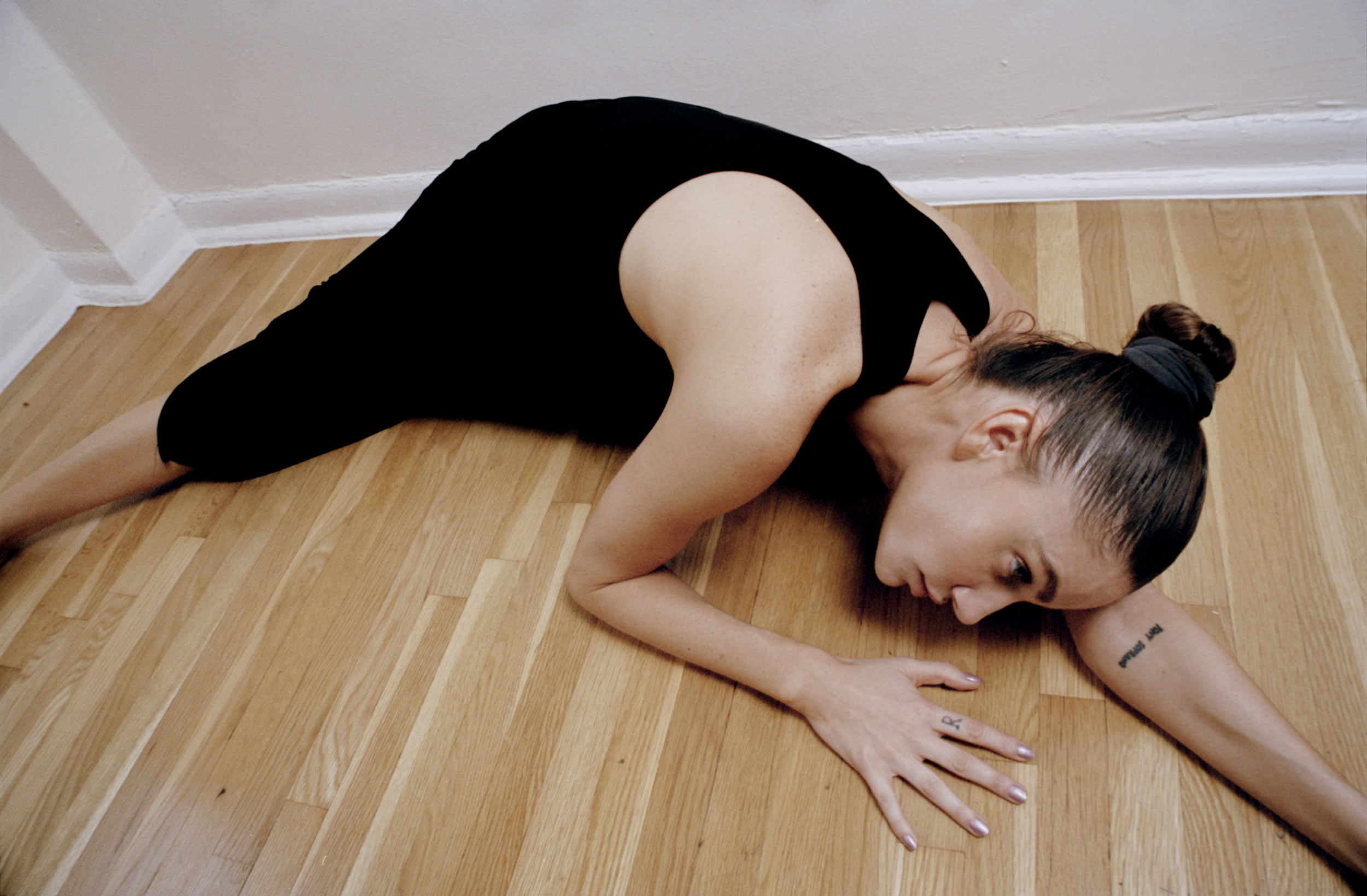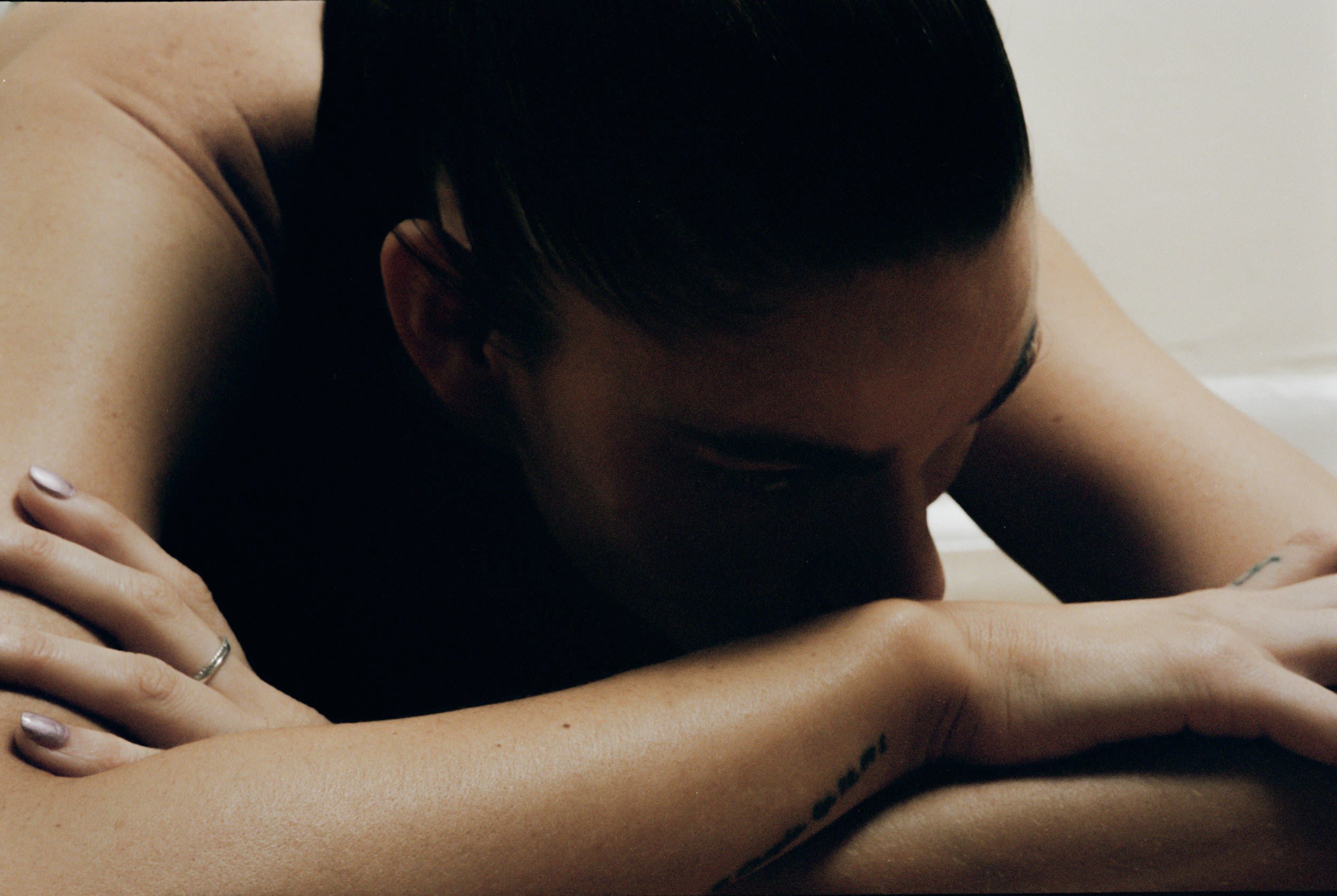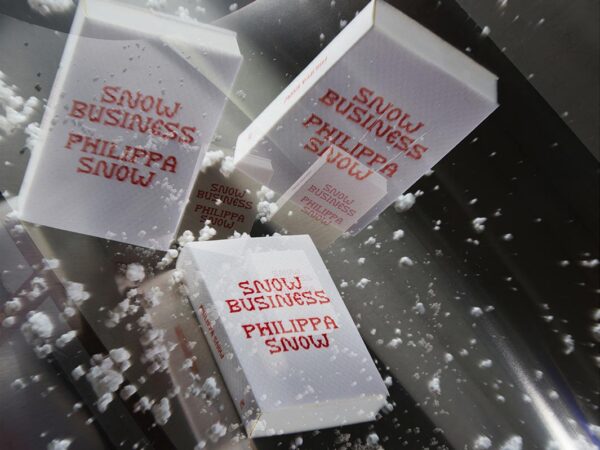For Document, the musician and the actor meet as benefactors of one another’s work, discussing the transcendence born from opening the self
Michael Imperioli’s role as a psychosocially dysfunctional, emotionally-absent father in The White Lotus reminds Niia Bertino of her own dad. But the actor’s character is more than a version of a memory of a person she grew up with; it also mirrors a potential future self. “I don’t want to be my father’s daughter,” she discloses to Imperioli, reflecting on the ways she once inhabited the exact behaviors that distanced her from her dad.
Bertino has long grappled with that bleak legacy: how to resist carrying it forward more than she already has, and how to translate it into art without letting it define her. The jazz musician’s latest record, Bobby Deerfield, released under her forename, is the manifestation of such introspections. It’s inspired by the Sydney Pollack film of the same title, which similarly spans themes of forgiveness, attachment, and inherited identity. The record is deeply personal—a cathartic exploration of the interpersonal—an affinity she sometimes fears is indicative of self-indulgence.
But to Imperioli, the act of art-making is unselfish, especially when it’s intimate; “I don’t call that narcissism,” he muses. “It’s generosity.” Sometimes, personal pieces are the deepest-reaching—the ones capable of making someone, who is otherwise a stranger, feel less alone. For Bertino, Imperioli’s character did that in The White Lotus; but the feeling extends across his library of work, unspecific to the medium by which they were made. And beyond acting, she found resonance in Imperioli’s music, via his band ZOPA. A well-mannered child, Bertino was bent on pleasing her mother through her coming-of-age; only upon moving to New York did she come to understand that the punk Imperioli grew up on wasn’t about aggression, but rather an emotional sort of exorcism—something that easily adapted to her favored genre of jazz, embodied in her latest record in a way that resonated with the actor.
Following the release of Bobby Deerfield, the two meet as benefactors of one another’s work, to discuss the art of intimacy and the transcendence that is born from opening the self.
Niia Bertino: Your role [in The White Lotus], Michael—that is my dad. That’s who I’ve grown up with, and [those are] the vices of who I am. For years, I was a cheating, lying person, like my father. I’ve been figuring out how to choose to not do those things.
Michael Imperioli: Do you still have a relationship with him?
Niia: I do. It’s funny, because it’s the same [with your character and his child]. We’ll go through the motions: We’re on vacation, he’s on his cell phone, he’s not present. It’s too painful to try to confront, and we’re the children, so how are we supposed to know how to deal with it? I think, as I got older, I got brave [enough] to say, You know what? Fuck you. Or, I’m not going to make the same mistakes. But figuring out how to not make them was actually the challenge. I don’t want to be my father’s daughter. We’re getting closer, but it is hard. I mean, you’re a father—is it a real challenge to not project your bullshit onto your children?
Michael: Well, they might have a better answer for that. But, obviously, it’s a very consistent theme on [your] record. I guess what I gathered from it is that you had that period [when] you were a kid—you’re just there, dealing with the influence. And at some point, you realize, I’ve absorbed this, and it’s not working for me. It seems like the real gift is forgiveness. It seems like, in some sense, you realize that he did the best he could do back then. If he could have done better, he probably would have. Does [that] let them off the hook? Not necessarily. But do you want to live with resentment?
“Sometimes, I wish I could write about a tree or politics, but I can only really write about things that I’m going through personally. I’m trying to get more abstract as I grow.”
Niia: And also, to better myself as an artist, selfishly. I keep this stagnant feeling of resentment [for] these bad qualities I’ve inherited from him. But, really, I’m in control of my choices.
There’s a lot of self-reflection [on the album], which can feel a bit narcissistic. Sometimes, I wish I could write about a tree or politics, but I can only really write about things that I’m going through personally. I’m trying to get more abstract as I grow.
Michael: I think when things are personal, they also wind up being universal. Because, as human beings, we have so much in common. And if you’re dealing with something in a very direct way, and present it as art, [your audience] may project their own experience onto it. I don’t call that narcissism, it’s generosity.
Niia: That’s been a real journey for me. I was lying in my real life, but not in my lyrics. You can hear about the affairs. I’m talking about what I’m really thinking, but I wasn’t practicing it. It was very bizarre. Making it was the healing process, sharing it is scary—is it too honest?
Michael: Art can hold your secrets, because you’re not writing a biography—you’re writing a song, you’re acting as a character. They act as this mask you can hide behind, because you can always say, ‘It’s not me.’
You brought up The White Lotus before, and that character is not me by any stretch of the imagination—yet, there are emotional things [he experiences] that I understand. I could be tapping into something very honest and close to the bone, and yet I’m able to hide it, given the circumstances of this totally fabricated legend.
Niia: It seems that you’re drawn to darkness and the complicated stuff that [doesn’t have] an outright positive message, which I love to explore, too. Why are we so drawn to darkness?
“Art can hold your secrets, because you’re not writing a biography—you’re writing a song, you’re acting as a character. They act as this mask you can hide behind.”
Michael: There’s definitely been a lot of dark times in my life, and art [has been] a way to tap into them. And when I was going through really hard times, there were artists that got me through them. The best songs and the best artists are the ones that make you feel less alone in the world. I’ve noticed a lot of the stuff that fuels my more personal work [explores] the same themes.
Niia: Growing up, I felt misunderstood. I was very shy and introverted. You’re drawn to punk—I stayed away from that for so long. I couldn’t understand it. I think it was because I was afraid to be that, to go there. When I moved to New York, I started reading the history of the ’60s and ’70s, and I realized that punk isn’t just someone aggressively playing a guitar. I started to understand the meaning and how I could adapt that to my own life. I was nervous about dabbling in ‘the dark arts,’ and now I feel more confident that I won’t become it.
Michael: There’s always that danger. It’s [at] 27 that a lot of people—especially musicians, like Kurt Cobain and Jimi Hendrix and Janis Joplin—[reach] a very intense crossroads where not choosing to start to grow or transcend can be very destructive, or very stagnant. It’s around when Saturn returns to the place it was when you were born, every 27 years. As you get older, if you don’t conquer those demons, they’ll eventually conquer you—or they’ll just diminish your art. People who could do a lot of drugs and drink all night long, they can perform that way. They can go to work the next morning with no sleep, just because they were young. [For] the ones who didn’t get off that train, their work suffered, or they suffered physically—they couldn’t maintain it.
Niia: Do you think there’s a lot of glamorization of that?
Michael: I don’t think it’s so much glamorization—because when you’re in it, it’s certainly not glamorous. As a defense, you might have the idea in your mind that, All of my favorite artists are screwed up. But when things really start to fall apart, your work starts to suffer.
Niia: You have a title for one of your songs that I’m obsessed with, ‘Love and Other Forms of Violence.’ Do you think love is a form of violence?
Michael: Do I think so? No.
Niia: I think that I do.
Michael: It can be perceived by people as such. It reminded me of a [Rainer Werner] Fassbinder movie called Love Is Colder Than Death. I was singing about people who were looking, on some level, to be loved, but in very wrong places. And even though they know [they were] wrong, they were still drawn to those places. It’s not making the judgment that love is just another form of violence, but that it’s a subjective experience.
“I think that anger often is necessary; it arises so you can leave a certain situation. But I think, to hold onto that, even though you’re not in that relationship anymore, that’s where the poisonous stuff really happens.”
Niia: It resonated with me because so many of my other albums were all about love, and the anger that comes with love.
Michael: It certainly can.
Niia: Do you think anger is okay?
Michael: I mean, what is okay? Is it necessary?
Niia: What does Buddhism say about anger?
Michael: Well, anger is an afflictive emotion—they say—because when you’re angry, you can’t really see reality very clearly, and it can be very destructive. But as you practice Buddhism, when anger arises, you find ways to work with it. I think that anger often is necessary; it arises so you can leave a certain situation. But I think, to hold onto that, even though you’re not in that relationship anymore, that’s where the poisonous stuff really happens. I know a lot of people [whose] parents are long dead, and they still have tremendous anger towards them. It’s not helping you—that anger is just eating you. The parent is gone. You’re not rebelling against them anymore. They’re not even affected by it. You have to make peace with that. Do you want to be burdened with this emotion that’s so toxic?
Niia: I grew up Catholic, and as I get older, I’m more and more drawn to Buddhism and meditation. A lot of my jazz musicians are Buddhists, and I’m realizing it’s because—correct me if I’m wrong—the goal is to find that space of openness. How can you not create your best work when you’re completely open?
Michael: Buddhism really is about working with your own mind. In some ways, it’s much more like a science of mind than it is a religion. There’s not a lot of religiosity, at least in my point of view, about Buddhism, because it’s not a theistic religion. Buddha is not a God; he was a man who transcended certain things. It’s really about working with yourself, because you interact with the world through your mind.
Niia: What I’m struggling [with] is the ego element of Buddhism—dismantling it and all of that. As an artist, sometimes I feel like it’s so important to have a relationship with [my ego].
“How can you not create your best work when you’re completely open?”
Michael: Maybe it’s the definition of what the ego is. When Bernardo Bertolucci did a movie called Little Buddha, he had a very learned Tibetan Buddhist teacher on the set as an advisor. Bertolucci was very interested in Buddhism, and he said to this guy, ‘I’m an artist, and I’m Italian. What does this mean about the ego and passion?’ And the teacher said to him, ‘You can keep your passion, you just have to lose yourself.’ The emotional resonance to the work comes first, not the limitations of the self, per se—not clinging to who [you are] as an identity. You can have all your passions, what moves you, what pushes your buttons, what inspires you—I don’t think that’s necessarily ego. I think ego can be a thing that limits us when it’s limitless. Moving towards a certain openness of mind, that’s where art can really flourish. Clinging to ego, people can be not so generous, not so open-minded, not so tolerant, not so kind. Ego can create that prison. [Buddhism teaches] to be even more open to life—even more open to others, even more compassionate, and letting that feed your work.
I say this all the time to other artists: You never know who you’re touching. Once you put something out there—whether it’s a TV show or a song or a book—there might be one person, quite literally, whose life you save because they don’t feel so alone.
Niia: I’ve had some of those messages, and I guess it’s hard for it not to hit my ego in some way. Or it becomes a lot of pressure or responsibility—that I’m grateful for—but it starts to impact me differently. Being an artist, you’re elevated on-stage, amplified, looking down at your audience. There’s a lot of power. I think I’m finally getting comfortable in that position. You know a lot about [being an] idol—people have tattoos of you, people are obsessed with you.
Michael: But you could look at it as generosity, right? You’re not in service of yourself, you’re in service of the song and the sound. And at that point, it’s something else. I think that’s where people start to rest on their own laurels, and don’t challenge themselves and get out of their safety zone—because the ego is like, I have this image to hold up.
Niia: It is a selfless job to be an artist, I guess.


